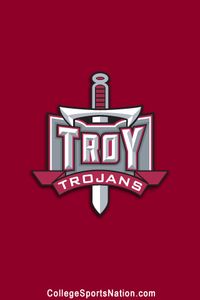Think of this as Volume 14, Number 11 of A-Clue.com, the online newsletter I've written since 1997. Enjoy.
What we have learned in the last 15 years is that, for the Internet to take over an industry, the old industry must die — or go through a near-death experience.
Many industries have died and been reborn online since the Web was spun. Travel agents once dotted every corner. The Yellow Pages was once the most-thumbed publication in the house. Newspapers once weighed more than magazines. Each has gradually been replaced by the Web.
Some industries have adapted, usually when they lacked profits with which to fight back. Libraries are still vital because they have Internet-linked computers and broadband, and because they use the Web to let people get the books they want, not just those on the local shelves.
But profit-making industries die harder deaths. The death of newspapers has been tough to watch, and since the Web has yet to replace them on a local level, its advocates have a case. Health care is mid-way through its transformation, but meanwhile we have a system where the poor outbid the middle class for care.
The latest industry to feel the lash is education. A lot of people, especially young people, are terribly stung by this. The cause of this crisis is the current economic slowdown, but that only exposed obvious flaws in higher ed's business model.
In other words, higher education is a great opportunity.

I can't tell you how good Troy University or Herzing University or DeVry or Phoenix are. I can't compare them to the Rice University I attended in the 1970s. I know most of those who work in the field insist they're not comparable at all.
What I do know is that, until now, most have had a limited number of offerings. They have cherry-picked the easy to serve career fields, like medical technicians and computer server operators. They offer business degrees and basic science. You can't take Chinese there yet, or the higher callings the big schools have.
You will also find that your Herzing degree does not get you much respect. But it may get your foot in the door. You will get your chance.
What most critics don't understand is that schools like this have been competing for years against Community Colleges, the lowest-cost and highest-volume rungs on the higher ed ladder, and they have been competing well. They have been growing. They have honed their business models.
They are ready to fly.
Most undergraduate lesson plans are as standardized as high school. If you're at the University of Florida your classes aren't going to be much different than they are at Texas A&M. The reason both those schools spend millions becoming sport franchises is to maintain the political support they need to keep building and maintain their reputations.
Undergraduate education, in other words, is a commodity. Sports are the political payoffs meant to sustain a fading industry.
This is where the online schools can now step in. They can expand their offerings and pick up market share states are throwing away. They can do this because their costs are low. By doing most of the work online they extend the value of every staffer's online hour. You can do lectures on the Web, with whiteboard work done as at GotoMeeting. Why do you need to physically be there all the time?
Oh, socialization. You mean getting drunk? Oh, lifelong friendships. Can't you make those in your community?
Increasingly the extra cost of a college education is not matched by its value. Those colleges that specialize in teaching kids, as opposed to research, have two choices — change or die.
This is a very good thing. Massive change only happens under stress. Those businesses — and state-supported colleges are businesses — must change or die.
Schools like Troy and Central Michigan prove that change is possible. These are real schools, with real campuses. They are also big in online education, with facilities in distant cities supporting their online infrastructures. They even have football teams. Troy beat my alma mater, Rice University, in a bowl game a few years ago, and in retrospect it was a serious rite-of-passage.

This is not true for, say, Kennesaw State, which chose to grow its undergraduate base just as the cost structure of that business was collapsing. The Rice Owls will go on. I'm not sure of the Kennesaw State Owls.
What is happening in California is tragic. But it should be seen as the sound of opportunity. If I were them I'd designate one school — a good one — as the center of a new online curriculum focus. I would cut even deeper at other schools and push for excellence in the online curriculum of the chosen one. (And if I were to choose, I choose the University of California.) I would work to take its real curriculum, its high-end curriculum, and put that online. I would hire teachers and graduate students from failing faculties to staff this online college, and I would offer a full academic program.

They can ignore this call, but what they will find is not that education disappears, that bright high school kids wind up on the streets with nothing to do. What they will find is that kids go to the Internet, that the online schools grow even faster, and that in five years it's the University of Phoenix that will belong in the Pac 10, not UCLA.
This is the beauty of Internet competition. It's the beauty of the online universe. When costs force offline cuts, we move forward and take the market.
And as online higher education grows, we're going to find that a lot of niches that are going begging right now — like local investigative reporting — find a cadre of trained professionals with the skills to build businesses that take up the slack.










Dana please come here in Romania, you`ll get more interesting facts to talk about in your articles. Email me and i`ll send you some.
Dana please come here in Romania, you`ll get more interesting facts to talk about in your articles. Email me and i`ll send you some.
5 years from now, almost all people will have access to the internet. this will become a need for all of us.
5 years from now, almost all people will have access to the internet. this will become a need for all of us.
Never been to Romania. Would love to go to Romania. How can I find the money to get to Romania?
Dana
Never been to Romania. Would love to go to Romania. How can I find the money to get to Romania?
Dana